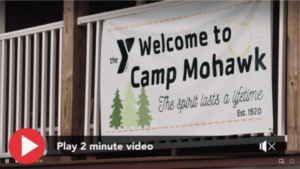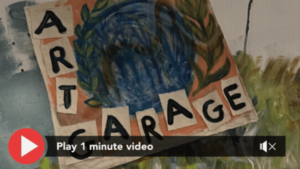
Originally Published March 28, 2019
Educated Canines Lend a Helping Paw
ECAD envisions a community where all those living with disabilities are able to achieve new heights of desired independence and mobility through the use of ECAD-educated service dogs. The growing organization in Winsted has trained more than 300 service dogs trained to assist with 50 different disabilities.
ECAD trained dogs retrieve objects and medications, provide physical barriers in stressful situations, and get help if someone collapses. They learn more than 89 commands before they begin one-on-one training with their person.
"Because of your gift, more educated assistance dogs will be placed with more people living with disabilities...your gift, the work you help us do, really does change people's lives," said Lu and Dale Picard, ECAD Co-founders.
Through 2017-2018, the Draper Foundation Fund, a fund of the Northwest Connecticut Community Foundation, awarded ECAD multiple grants to support the construction and expansion of a Canine Education and Wellness Center, which provides canine housing and training, rooms to host clients, and staff offices. Grants have also supported the purchase of a handicap accessible van to transport clients to public areas for training sessions with their new service dogs.
"[ECAD service dog] Kobuk pretty much helps me with everything, picking up my cane...with my balance when I climb the stairs," said an ECAD client, "Kobuk opening the door is the biggest thing because that means I can get out of the house."

Historic Treasures Preserved
The Torrington Historical Society adds hundreds of artifacts a year to its collections. These photographic prints, glass-plate negatives, and paper documents are enjoyed by thousands of visitors each year.
Archival supplies and equipment are an expensive and necessary component of ensuring that the collections are properly stored and preserved, as they serve as the backbone of the historical society's programs, exhibits, tours, publications, and research.
"Humidity fluctuations can be especially damaging," said Gail Kruppa, assistant director/curator of the Torrington Historical Society.
"Ultimately, it's the proper care of the collections that allows the Society to share the city's rich history with researchers, residents, school children, tourists, scholars and others—now and for many generations to come."
Through a recent grant from the Ruth and Robert Cron Endowment Fund, the Torrington Historical Society was able to purchase the dehumidifiers, shelving and archival supplies needed to preserve Torrington history through the upcoming warm and humid spring and summer months.

Children Diverted from Homelessness
The Connecticut Coalition to End Homelessness provides service-providers on the front-lines of homelessness with access to the small grants needed to prevent most families from losing their homes.
Each year more than 100 families, including 200 children in Northwest Connecticut stay at a homeless shelter. More than two thirds of these families are led by single mothers, and one third of their children are under the age of five.
“Preventing children from entering shelters results in better outcomes throughout life, as loss of home is a traumatic experience for children and their families," said Madeline Ravich of the Connecticut Coalition to End Homelessness.
The average amount of money required to prevent these families from becoming homeless is $1,000. That's the rental assistance, car repair, or utility payment that stands between them and a homeless shelter.
The Coalition recently received a grant from the Edward W. Diskavich Fund, a fund of the Northwest Connecticut Community Foundation, that will enable the Coalition to keep 10 Northwest Connecticut families with young children from experiencing homelessness.


